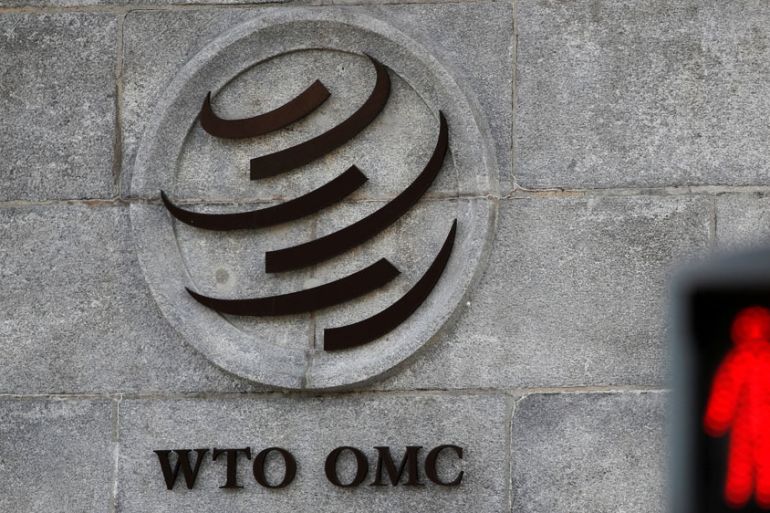Saudi Arabia refuses to engage in WTO dispute brought by Qatar
Riyadh says it cannot engage in dispute settlement procedures because of ‘national security concerns’.

Saudi Arabia told the World Trade Organization on Tuesday that national security concerns meant it “simply will not engage in dispute settlement procedures” regarding an intellectual property complaint by Qatar.
Qatar launched the dispute in October, saying Saudi Arabia was blocking Qatari-owned broadcaster beIN and refusing to take effective action against the piracy of its content by a sophisticated operation called “beoutQ”.
Keep reading
list of 4 itemsQatar emir condemns ‘genocide’ in Gaza, urges ceasefire at GCC summit
‘Enduring commitment’: Key takeaways from US-GCC joint statement
Analysis: Efforts to end Assad isolation gather speed after quake
BeoutQ, a 10-channel system broadcasting to the Middle East on the Arabsat satellite operator, is allegedly being transmitted from Saudi Arabia.
The Saudi representative told a WTO dispute settlement meeting that Riyadh had cut ties with Qatar to protect its vital security interests and WTO agreements could not override that decision.
“My government considers that the severance of diplomatic relations renders impossible the conduct of any dispute settlement procedures,” the Saudi trade diplomat said.
Piracy row
BeIN Media Group, the Doha-based sports network that holds exclusive rights to broadcast all major international sports events to the MENA region, has claimed beoutQ is stealing its signal and broadcasting it as its own.
The piracy row between Doha and Riyadh escalated during the FIFA World Cup in Russia in June, when beoutQ illegally distributed football matches in the Middle East.
FIFA, football’s governing body, said in July it had engaged counsel to take legal action in Saudi Arabia and urged Saudi authorities to help in “the fight against piracy”.
Other sports federations also issued similar statements, condemning beoutQ’s pirated coverage in the MENA region.
On June 5, 2017, Saudi Arabia – alongside fellow Gulf Cooperation Council (GCC) countries Bahrain and the United Arab Emirates, as well as Egypt, imposed a sea, air and land blockade on Qatar, accusing it of supporting terrorism and destabilising the region, allegations Doha has consistently denied.
Qatar first turned to the WTO in August 2017 with a wide-ranging complaint to challenge the trade boycott by the blockading nations.
|
|
On Tuesday, representatives of the United States, Egypt and Bahrain supported the Saudi position at a WTO dispute settlement meeting, while the European Union and Turkish diplomats spoke up in support of Qatar, a Geneva trade official said.
A Saudi official said a WTO dispute panel would have no right to adjudicate beyond recognising that Saudi Arabia had invoked the WTO’s national security clause, giving it an exemption from the rules.
“In sum, my government strongly submits that the WTO is not, and cannot be turned into, a venue to resolve national security disputes,” the Saudi official said.
Diplomats have long seen the national security clause as a dangerous tool that would allow any country to get around the rules it doesn’t like.
Last year the taboo on invoking that clause was broken in the dispute between Qatar and its Gulf neighbours Bahrain, Saudi Arabia the United Arab Emirates, as well as in a separate dispute between Russia and Ukraine.
The United States subsequently used those grounds to justify the imposition of tariffs on steel and aluminium in March, and a similar threat of tariffs on car imports.